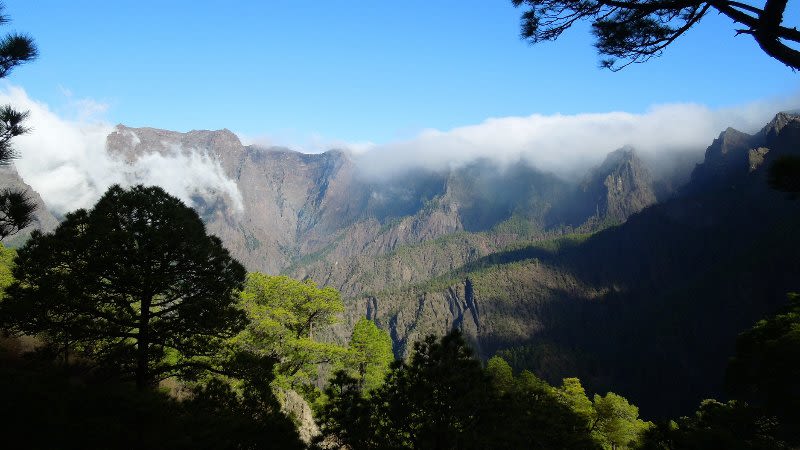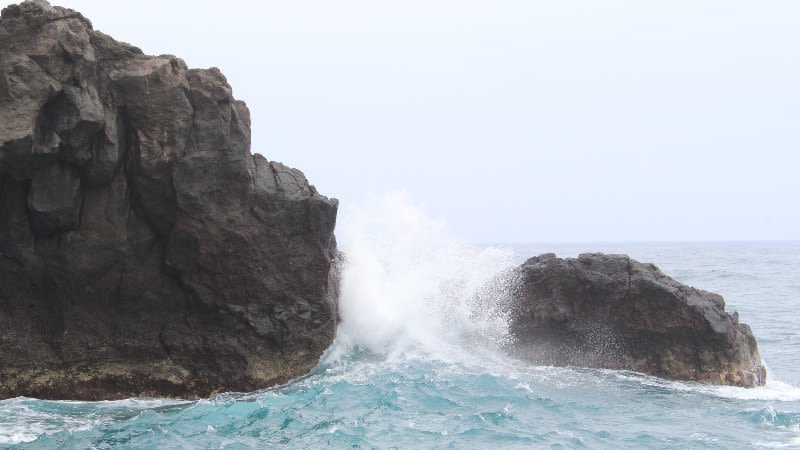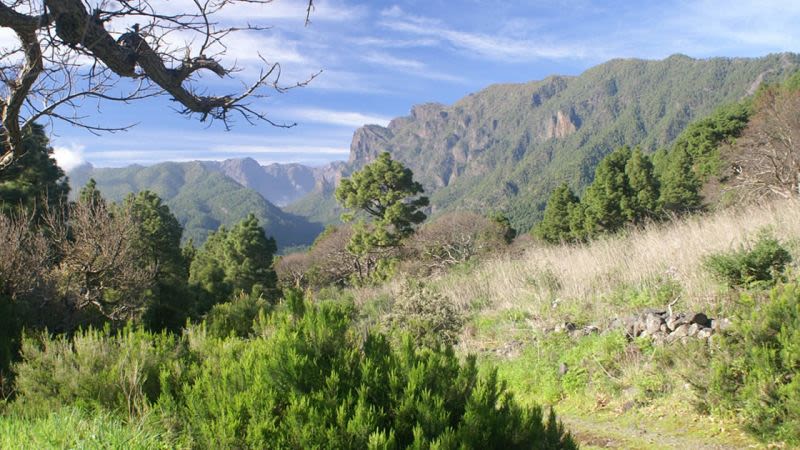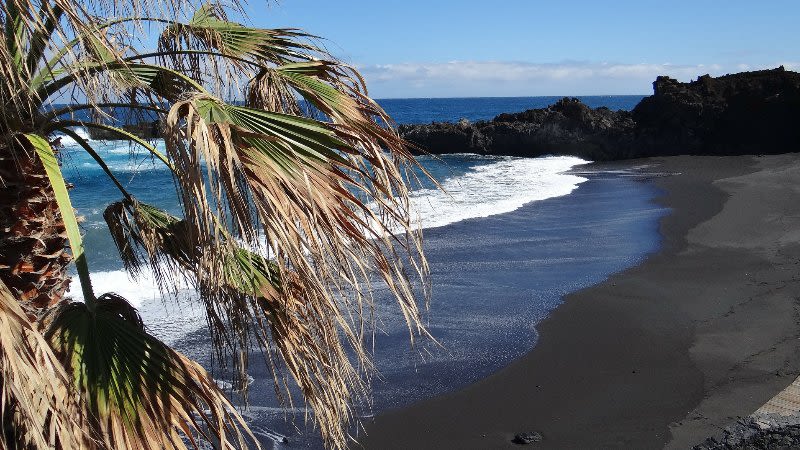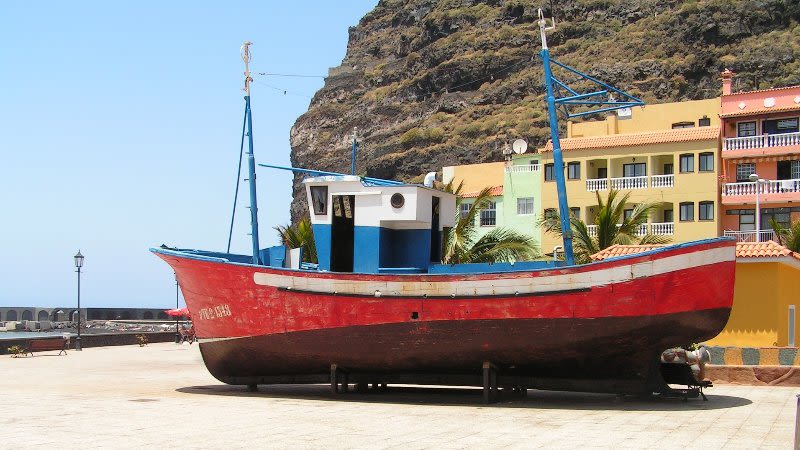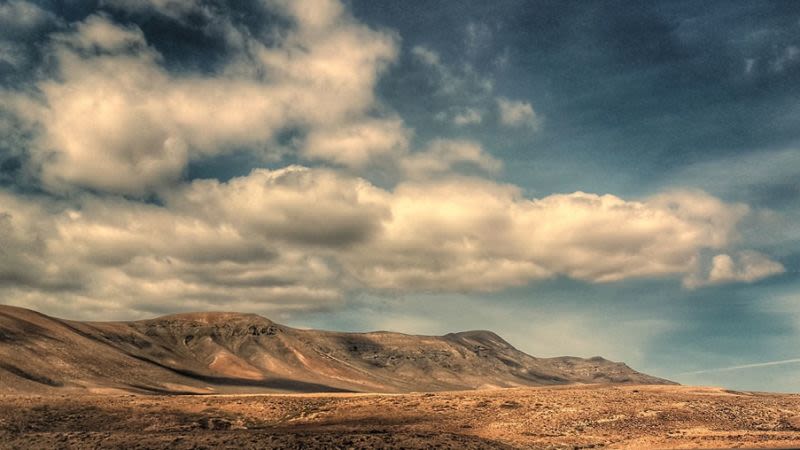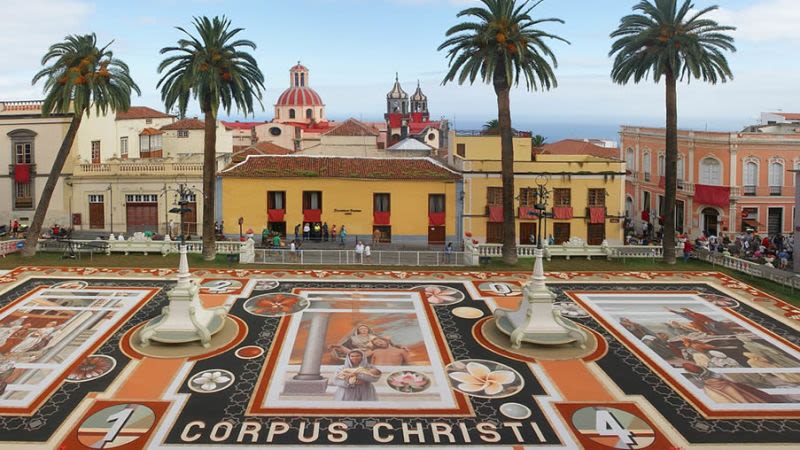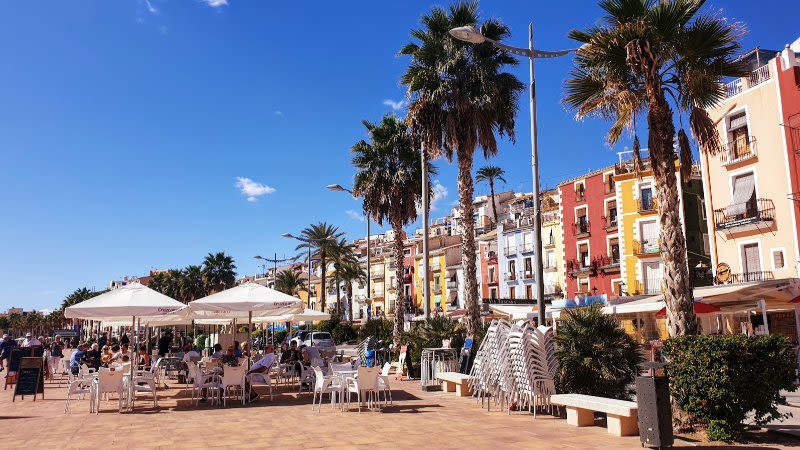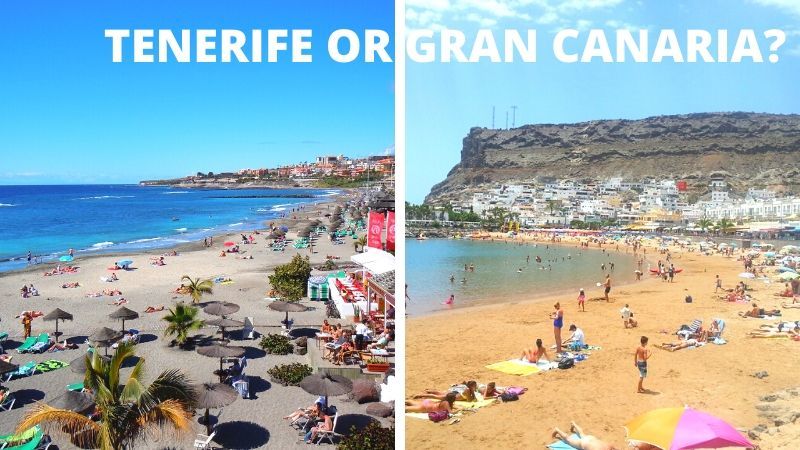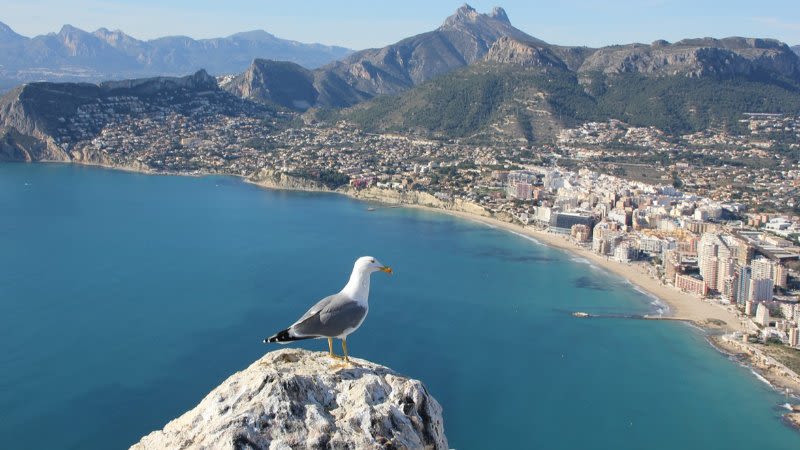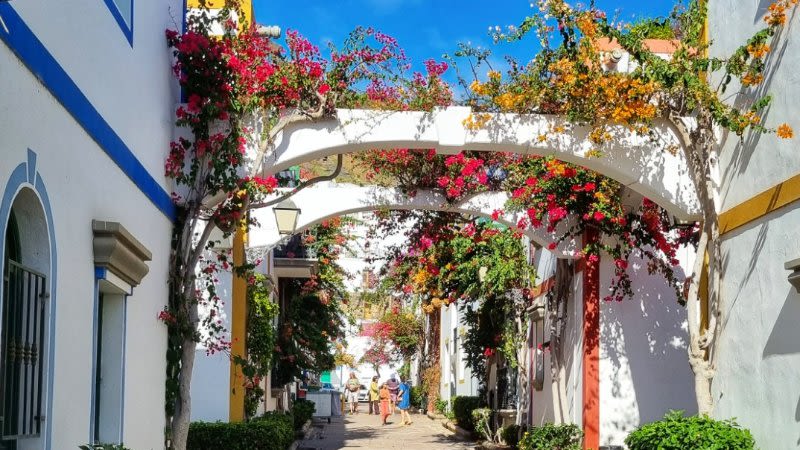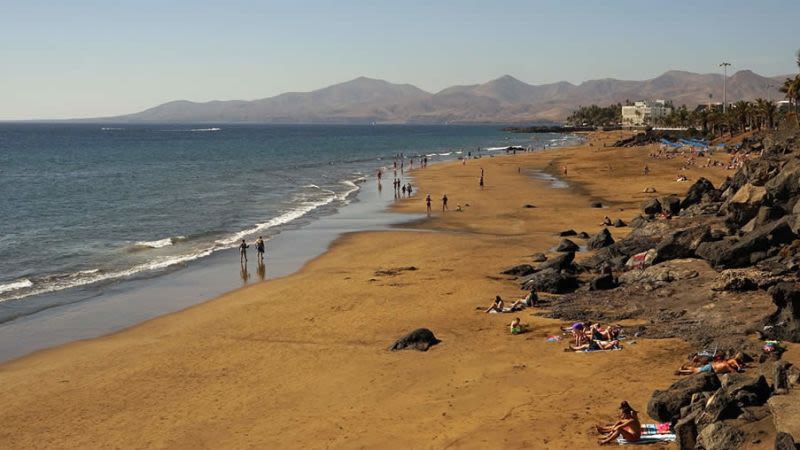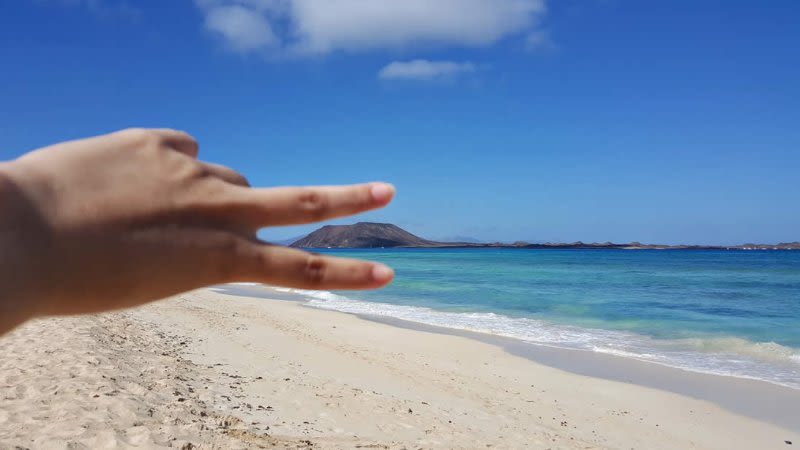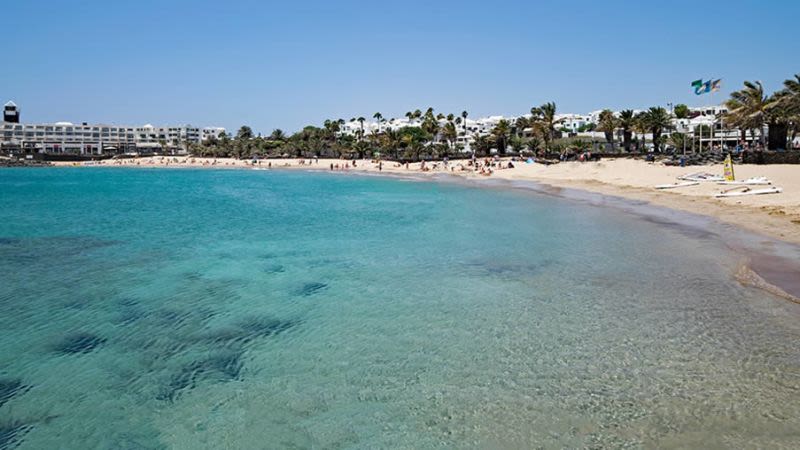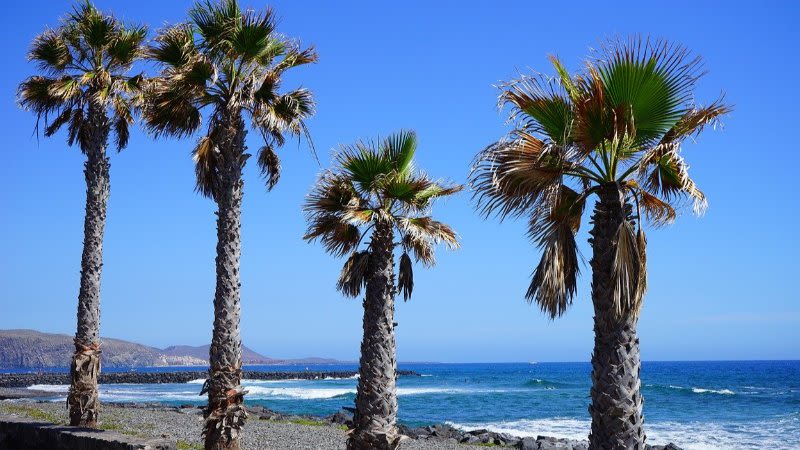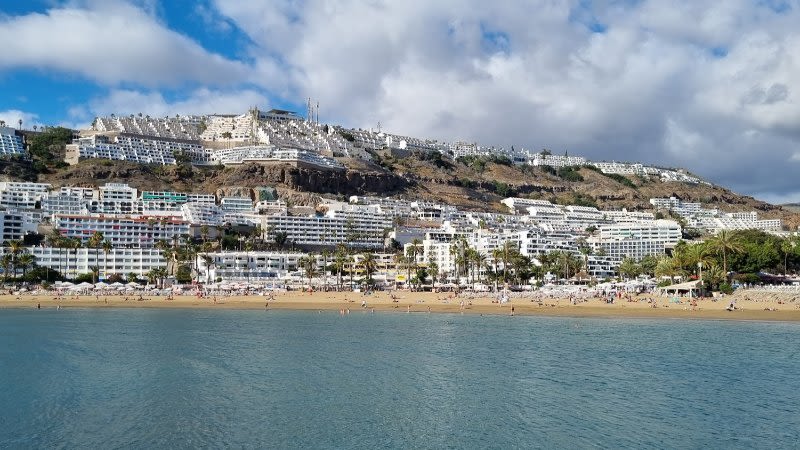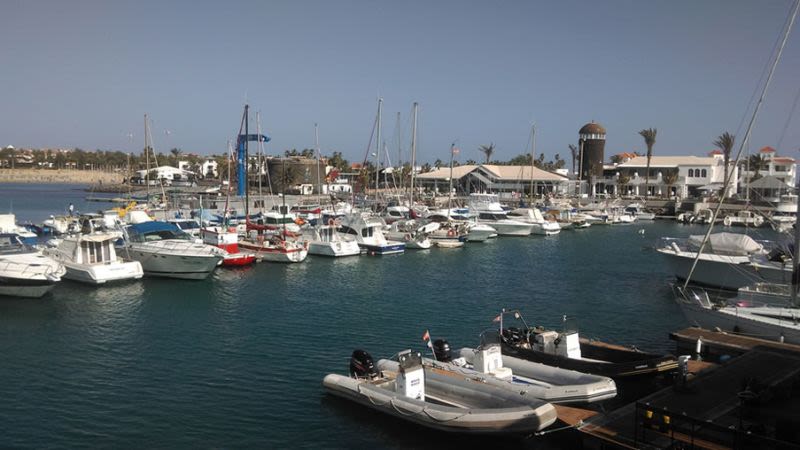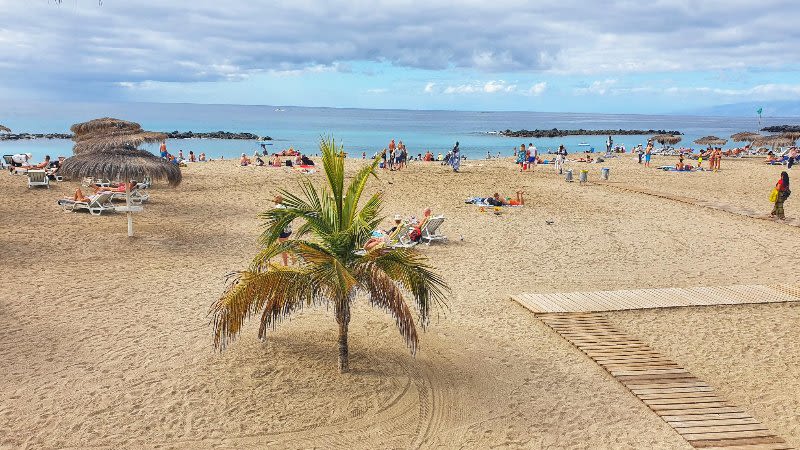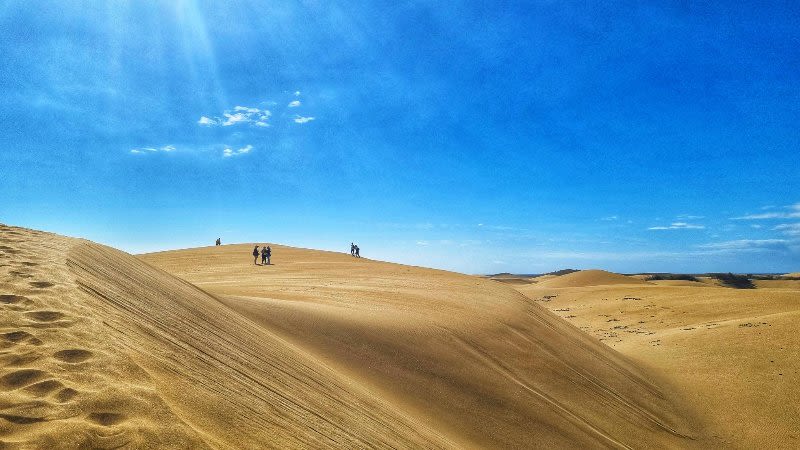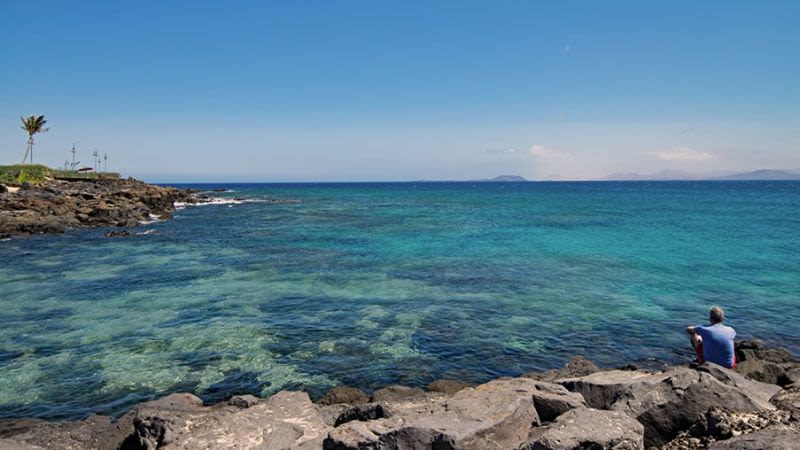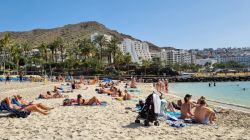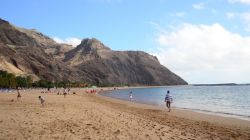La Palma Weather in January - Start the year with some sun
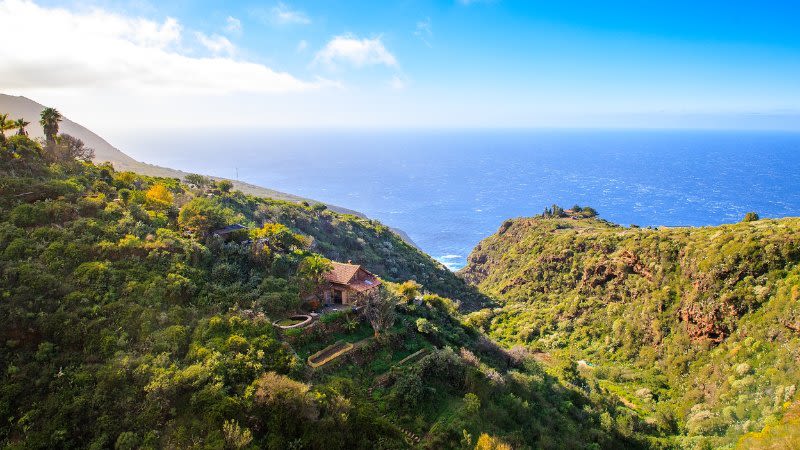
If you're living in Europe, January is probably associated with bad weather, low temperature and even snow in most places. But for the most part, that is not the case for La Palma, one of the Canary Islands, part of Spain.
Although La Palma is NOT a tropical island, the winters here are considered mild, with really good temperatures, ideal for being outdoor.
And if you look for accommodation on the right coast, you will most likely have a majority of sunny days even in winter. Just keep reading to see where to look.
Weather averages for January in La Palma
These temperatures are measured at the meteorological station in La Palma Airport (close to the island's capital - Santa Cruz de La Palma), on the east coast of the island.
- RECORD HIGH TEMPERATURE: 27°C
- AVERAGE HIGH TEMPERATURE: 20.6°C
- DAILY MEAN TEMPERATURE: 18 °C
- AVERAGE LOW TEMPERATURE: 15.5 °C
- RECORD LOW TEMPERATURE: 9.4 °C
- AVERAGE RAINFALL: 50 mm
- AVERAGE RAINY DAYS: 5
- MEAN MONTHLY SUNSHINE HOURS: 133
- MEAN DAILY SUNSHINE HOURS: 5
- SEA TEMPERATURE: 20 °C
What is the weather like in La Palma in January
Weather in winter can be tricky in La Palma because the chances of rain increase significantly compared to autumn, with November and December being the wettest months. The chances of rain in La Palma in January drop by about 50% compared to December, so things are looking good from that perspective.
According to statistics, January can be regarded as the coldest month in La Palma, based on the average high and average low temperatures. But even so, La Isla Bonita remains one of the best destinations for winter in Europe and one of the warmest as well.
See our recommendations for the best things to do in La Palma
Average temperatures in Santa Cruz de La Palma
- The average temperature is 18 °C, which is a mean value calculated between the average high temperature during the daytime of 20.6 °C and the average low temperature of 15.5 °C.
With a daily mean of 18°C in January, the temperature in La Palma is still above most other places in Europe, even if this is the coldest month of the year. During the day time, you can still temperatures above 20°C on most if you're staying on the coast. In terms of temperatures, January is very similar in numbers to the month of February.
If you want to go hiking in the mountains, keep in mind that the temperatures usually drop by 1°C for every 100m above sea level that you climb.
Rainfall
- The average rainfall in January: 50 mm
January can be considered a wet month in La Palma, but this is what keeps the island green and lush, one of the first things that attract visitors to come.
Rain usually happens during the course of 5 days in January, which is why we recommend bringing a jacket and water-resistant shoes, so that you can be prepared for rainy days in case these occur while you're in La Palma.
Sea temperature
- Average sea temperature in January: 20°C
The ocean temperature drops to around 20°C and for most people, it is usually too cold to swim at this time of the year.
You can still spend time on the beach, dip your toes in the ocean but it will probably be too cold to comfortably swim in January.
Sunshine hours and daylight hours
- Daily hours of sunshine: 5
5 hours might not seem that much, but keep in mind that some places get more sun than others.
We recommend that especially for the winter months, you look for accommodation somewhere on the west coast, between Puerto de Tazacorte and Puerto Naos, since this is the area that gets the most hours of sunshine on the island.
Events in January
- January 5th - Three Kings Parade in La Palma
This is one of the best traditions in Spain and we recommend that you don't miss it if you're on the island at the start of the month.
The largest parade is the one in the capital, in Santa Cruz de la Palma, but all the other municipalities will have something planned for the day.
Should you come on holiday to La Palma in January?
If you're looking for wall to wall sunshine, January might not be the best time to come. Actually, La Palma might not be the right destination either, no matter which month you choose for a visit.
But in our opinion, with temperatures that rise above 20°C, it is warm enough to feel comfortable outside during the day time, while exploring the trails and mountains on the island. You have so many options of things to do, from hiking through National Park Caldera de Taburiente and Natural Park Cumbre Vieja, to enjoying the sun in Tazacorte, taking a boat trip to see dolphins or visiting the capital, Santa Cruz de La Palma.
There's really no time to be bored in La Palma, even in winter, especially if what you're looking for is to be outside and enjoy nature.


